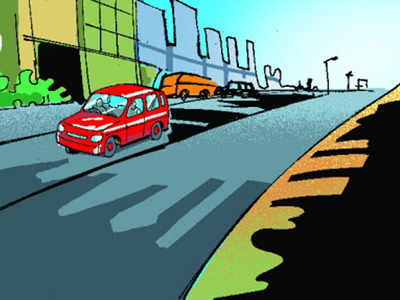AHMEDABAD: Ever since the Electronic-way (E-way) bill system was rolled out a year ago, Gujarat has topped the chart when it comes to the generation of inter-state e-way bills.
The state generated 4.3 crore interstate e-way bills in 2018-19, which is the highest among all Indian states, shows data provided by the state commercial tax department.
The system was rolled out from April 1, 2018, as part of which businesses and transporters willing to move any goods worth more than Rs 50,000 from one state to another, are required to produce an e-way bill.
“Gujarat is a manufacturing-heavy state. There is significant movement of manufactured goods from here to various parts of the country. Similarly, huge quantities of raw material are procured by industries operational in Gujarat from other states. Both these requirements involve generation of a high number of e-way bills,” said Ajay Kumar, special commissioner, state commercial tax department.
Industry players also attribute the growth in e-way bill generation to the opening of new markets due to implementation of Goods and Services Tax (GST).
“During the VAT era, transporting goods from Gujarat to other states attracted a slew of other taxes. However, after the GST rollout, these taxes have been unified across the country, which led to opening up of new markets for goods manufactured here,” said Jaimin Vasa, president, Gujarat Chamber of Commerce and Industry (GCCI).
“Greater e-way bill generation is therefore a reflection of increased manufacturing activity in the state. Commodities such as chemicals, engineering goods, pharmaceuticals, textiles, agricultural products and ceramics are supplied across the country from Gujarat,” he added.
Apart from interstate movement of goods, generating eway bills is mandatory for intrastate movement of goods as well. More than 6.7 crore e-way bills were generated in Gujarat in FY 2018-19, of which some more than 2.47 crore were intrastate e-way bills.
Commercial tax experts also attributed the increase in eway bill generation to better enforcement. “Under the valueadded tax (VAT) regime, a similar system was in place for interstate movement of goods and therefore, the compliance under GST regime was better in Gujarat. Moreover, we have deployed mobile squads from place to place to enforce better compliance,” Ajay Kumar added.
According to data provided by state commercial tax department, evaded tax as well as penalty to the tune of Rs 82.15 crore was collected from 5,152 vehicles by mobile squads in FY 2018-19.
Published On : 03-05-2019
Source : Times of India

